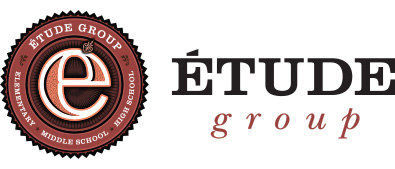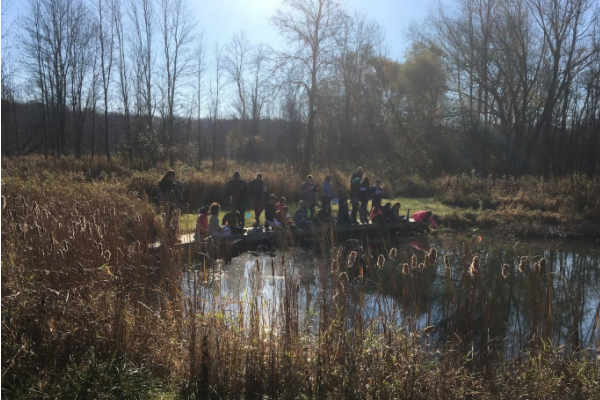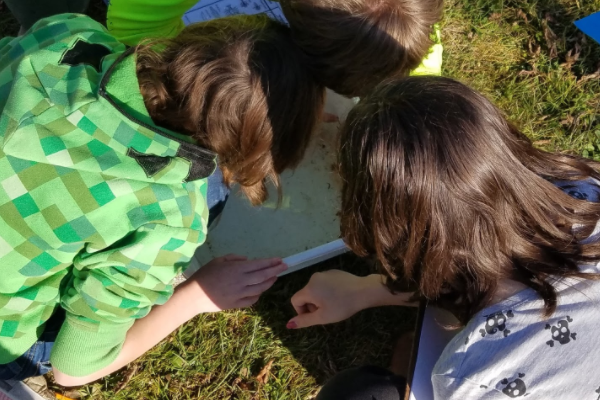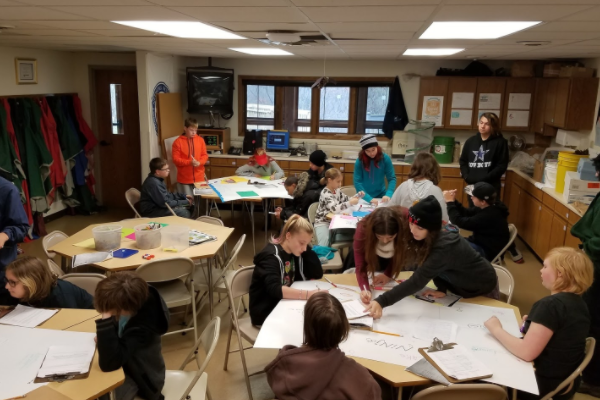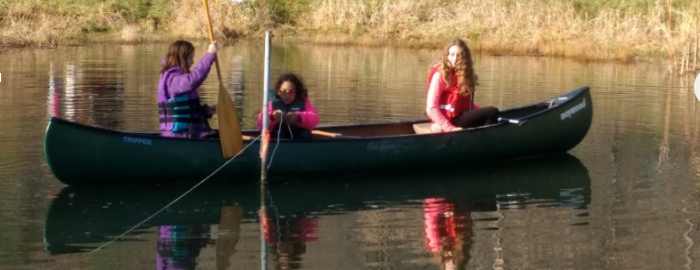
In Particles, Mosaic's science class, students have been exploring the question "How does the quality of water affect life?" This real-world question prompts a range of topics from ethics of contamination in Flint, Michigan to the Sheboygan River restoration project that students participated in our first week of school. Particles is designed to give students opportunities to look at these challenges in their tiniest forms, atoms, by designing experiments and substantiating their conclusions with data.
In an application of students' understanding of particles, their journey through investigating "How does the quality of water affect life?" in a water quality study at Maywood during a warm week in early November.
Students prepared for the field experience through junior versions of scientific research in our school environment, practicing the technical skills involved in measuring temperature, pH, and turbidity. While at Maywood, students studied the quality measures of large or small pond, observing the weather and other bioindicators around the pond. They sketched a diagram that was used as the basis for their claim they made about whether or not the water in the pond was healthy.
In smaller groups students launched their experiments. They collected particle data by using probes to detect pH, temperature, and salinity. Some students paddled a canoe through the pond to measure the size of the transect and take the turbidity measure. Others, observed and identified macroinvertebrates, aquatic plant life, and shore plant life.
After observation and data collection students reflected on their claims. They evaluated the validity of their claims based on the evidence. They created posters to capture the assessment of their claim and the relative health of the pond. Just like professional scientists and academics in many disciplines, students will present their data, reflection, claims, bioindicators, and a diagram of the pond in a poster session.
(This opportunity for applied science in the field is possible because of the Expanding Horizons program, funded by The Étude Sessions. )
